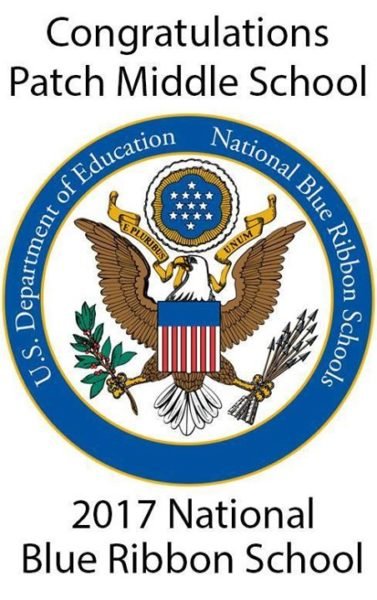Department of Defense Education Activity (DoDEA) Release –
Three Department of Defense Education Activity (DoDEA) Schools were recognized, Sept. 28, by U.S. Secretary of Education Betsy Devos as 2017 National Blue Ribbon Schools.
Killin Elementary School at Camp Foster Marine Corps Base in Okinawa, Japan; Patch Middle School at U.S. Army Garrison Stuttgart in Stuttgart, Germany; and West Point Elementary School at U.S. Army Garrison West Point in West Point, New York are among the 342 National Blue Ribbon Schools recognized. The award is based on their overall academic excellence or their progress in closing achievement gaps among student subgroups.
“I would like to congratulate everyone at Killin Elementary School, Patch Middle School, and West Point Elementary School for working together to achieve The National Blue Ribbon Award recognition,” said Thomas M. Brady, DoDEA Director. “This recognition reflects the commitment of the teachers, principals, students, parents, staff, and the local communities to excellence in education and their focus on high standards and student achievement.”
All schools are recognized in one of two performance categories, based on all student scores, subgroup student scores and graduation rates:
- Exemplary High Performing Schools are among their state’s highest performing schools as measured by state assessments or nationally normed tests.
- Exemplary Achievement Gap Closing Schools are among their state’s highest performing schools in closing achievement gaps between a school’s subgroups and all students over the past five years.
All three DoDEA schools qualified in the high performing category.
Patch Middle School embraces DoDEA’s commitment to providing students with rigorous, challenging and rewarding educational experiences. It strives to ensure that all students are treated fairly, respectfully and feel welcomed each day. Patch Middle School is designed around the collaborative teaming model and all teachers are committed to this model. Their philosophy is best articulated through their expectation that students develop as responsible young adults, who aspire to learn from challenges and grow through rigorous learning opportunities. At the same time, students engage in cultural and developmental interactions within the local community. New students are teamed with a student ambassador who assists with the peer-to-peer transition. Students are also placed into a small grade level teams and assigned an advisory family to provide the support of an educational advocate within their new learning community.

